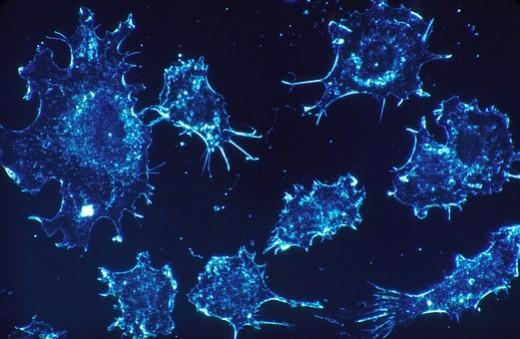
The Norse god of thunder and Marvel superhero, Thor, who possesses hammer-wielding abilities, possibly has the secret weapon humans have been looking for, to fight and cure cancer. However, just in this case, it's not the fictional character, it's a novel gene discovered and named 'THOR' by researchers from the University of Michigan Comprehensive Cancer Center.
They uncovered the gene while investigating previously unexplored regions of the human genome -- the dark matter of the human genome.
"Genes that are evolutionarily conserved are likely important for biological processes. The fact that we found THOR to be a highly conserved lncRNA was exciting. We chose to focus on it with the thought that it has been selected by evolution for having important functions," says Arul Chinnaiyan, director of the Michigan Center for Translational Pathology and S.P. Hicks Professor of Pathology at Michigan Medicine.
The researchers characterized a long non-coding RNA (lncRNA) that is present in humans, mice and zebrafish. It's absurd for lncRNA to be conserved throughout species like this. It made the researchers think that if the RNA plays a role in other animals and species besides humans, it must be important, Science Daily reported.
And, they were right, the team found that the particular lncRNA plays a role in cancer development and knocking it out can stop the growth of tumours.

This is the first group to identify and characterize THOR, which stands for 'Testis-associated Highly-conserved Oncogenic long non-coding RNA.'
Since THOR is highly conserved, researchers were able to study it in mice and zebrafish, as well as in human cells.
"That is one of the challenges of studying lncRNAs that are not conserved. If they're not conserved in model systems, they are difficult to characterize. Here, because THOR is so highly conserved, we were able to look at its expression and function in zebrafish models," Chinnaiyan says.
The researchers also found that THOR expression had a direct impact on cancer development.
They saw that if they knocked down THOR in cell lines expressing it, tumour growth slowed. When they overexpressed THOR, cells grew faster and when they eliminated THOR from normal cells, the cells continued to develop normally, which suggests that it only impacts the cancer cells.
In future studies, the researchers will try to create a compound that binds with THOR in a 'complementary sequence' which will be designed to knock it down.
The findings were published in the journal Cell.

















